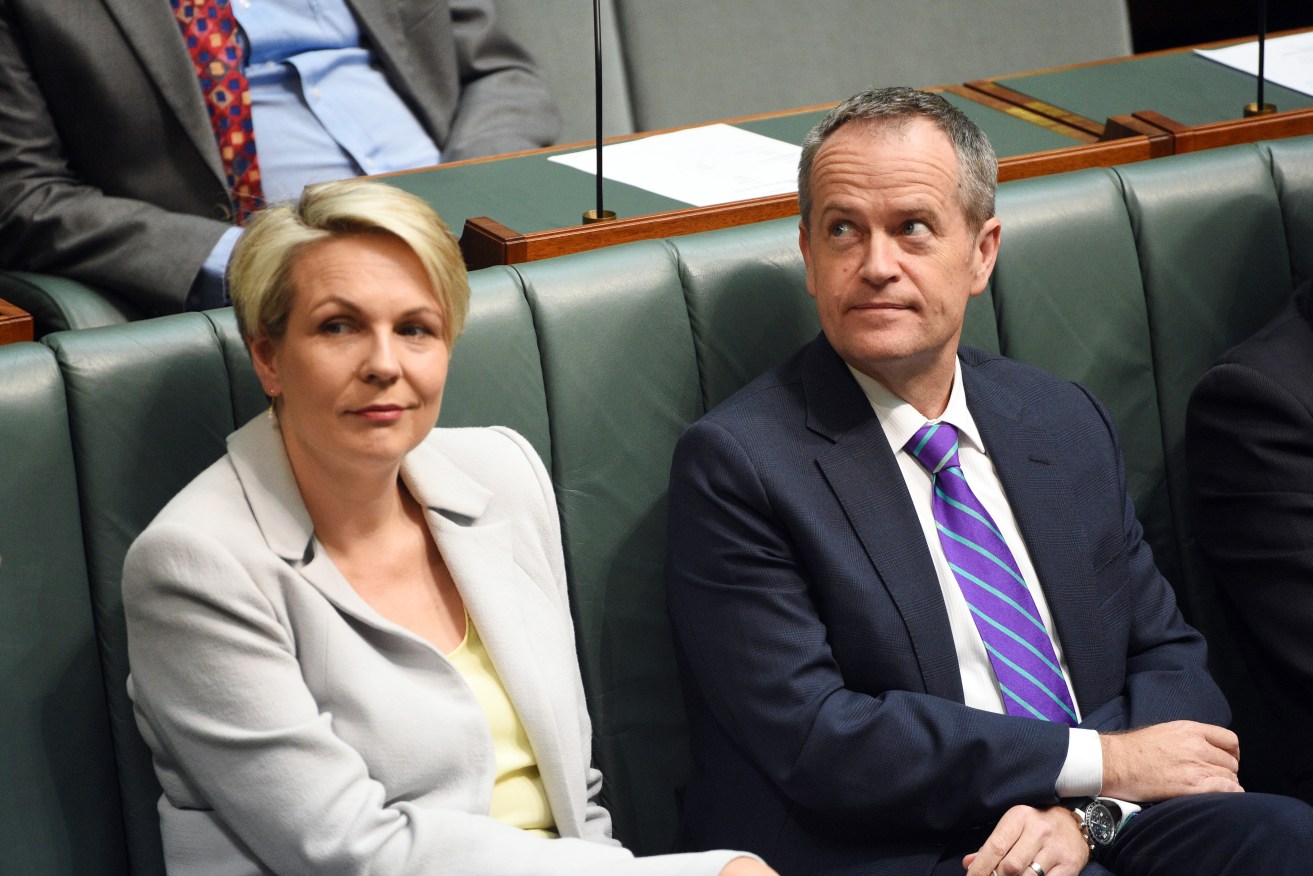Shorten introduces marriage equality bill
Federal Labor has introduced to parliament legislation that aims to legalise same-sex marriage in an attempt to gazump the Government’s planned national vote on the issue.

Opposition Leader Bill Shorten with his deputy Tanya Plibersek. Photo: Mick Tsikas / AAP
Opposition Leader Bill Shorten introduced a private bill today, saying it was a chance for the parliament to prove its worth and fulfil its purpose.
“Today we can bring a new measure of hope and happiness to the lives of tens of thousands of Australians whose love has been denied equality under the law for too long,” he told MPs this morning.
“Why should the children of LGBTI Australians be denied the formal recognition of their parents’ relationship?”
Shorten warned it was easy to take a legal right such as marriage for granted, adding Australia was lagging behind many other countries on marriage equality.
“We’re falling short of our own national sense of self,” he said.
Labor argues a non-binding opinion poll is a waste of taxpayer dollars because legislating is the role of parliament.
“A plebiscite would represent a fundamental failure of this parliament to do its job,” Shorten said.
Labor also fears campaigns for a no case could damage families with same-sex couples, and “risks providing a platform for prejudice and a megaphone for hate speech”.
Greens MP Adam Bandt had a second go, introducing a crossbench bill co-sponsored by independents Andrew Wilkie and Cathy McGowan.
Then he called for cross parliamentary support for a single bill, which would ideally have a Government co-sponsor.
“Instead of two bills proceeding, if we can all unify… it can become law,” he told parliament.
“If we all work together wedding bells could be sounding before Christmas this year.”
The legislation comes as a split in Government ranks emerges over funding opposing campaigns for a plebiscite, with one of the Turnbull Government’s strongest advocates for change arguing the competing sides on same-sex marriage don’t need public funding for their plebiscite arguments because most Australians have already made up their mind.
Liberal MP Warren Entsch also said it was telling that only the opponents were calling for funding after arguing for a plebiscite rather than a vote by MPs in parliament.
But conservative Liberal senator Eric Abetz insists the yes and no campaigns need to be funded by taxpayers.
“This idea that you can have a proper plebiscite without funding … would not be the sort of plebiscite that was envisaged by the (coalition) partyroom,” he told ABC radio.
Entsch argued there had already been much lobbying and debate on the issue.
“You’d have to be living on another planet not to already … have your own opinion on this,” he told ABC radio.
Coalition MPs are split on the issue of public funding, a cost that would come on top of the estimated $160 million to run the plebiscite.
Cabinet is expected to decide today how the plebiscite will work and what money, if any, is allocated to the yes and no campaigns.
Abetz warned cabinet not to “steamroll” the coalition partyroom on funding, saying it would breach arrangements made last year.
But Entsch, whose private bill was the catalyst for the partyroom debate, said there wasn’t any discussion about public funding or even what form the national vote should take.
He believes the electoral commission should provide voters with fact sheets on the yes and no cases without “emotional rhetoric”.
Senior figures in Australia’s Anglican and Catholic churches claim the prime minister has promised them funding.
But Malcolm Turnbull insists he’s only ever said if money was made available, it would be given equally to both the yes and no campaigns.
Labor frontbencher Terri Butler hit out at conservative MPs pushing for public funding.
“These guys are all for fiscal discipline until they … want public money to be given to oppose marriage equality,” she told reporters in Canberra.
Tony Abbott, who as prime minister last year made the decision to hold a plebiscite, said a popular vote was important because marriage was a very personal issue.
“If it is going to be decided by the people, as it should, obviously there needs to be proper campaigns,” he told reporters.
But he wouldn’t say whether he supported public funding for both sides, saying that was a discussion for the coalition party room.
-AAP




